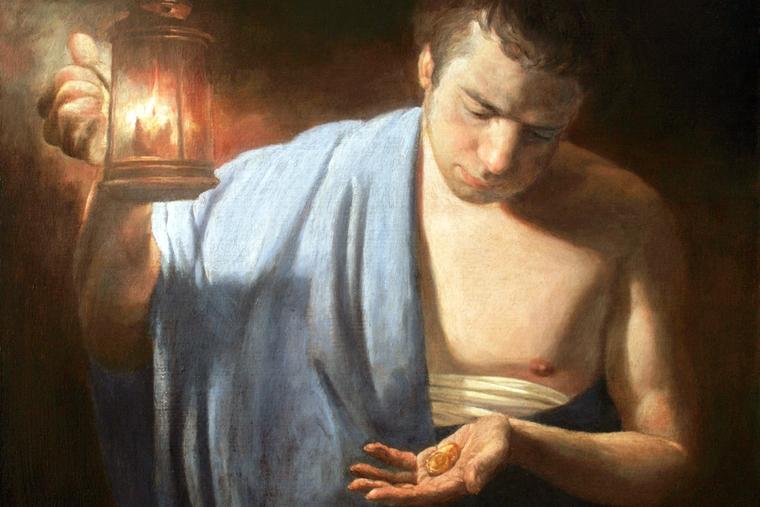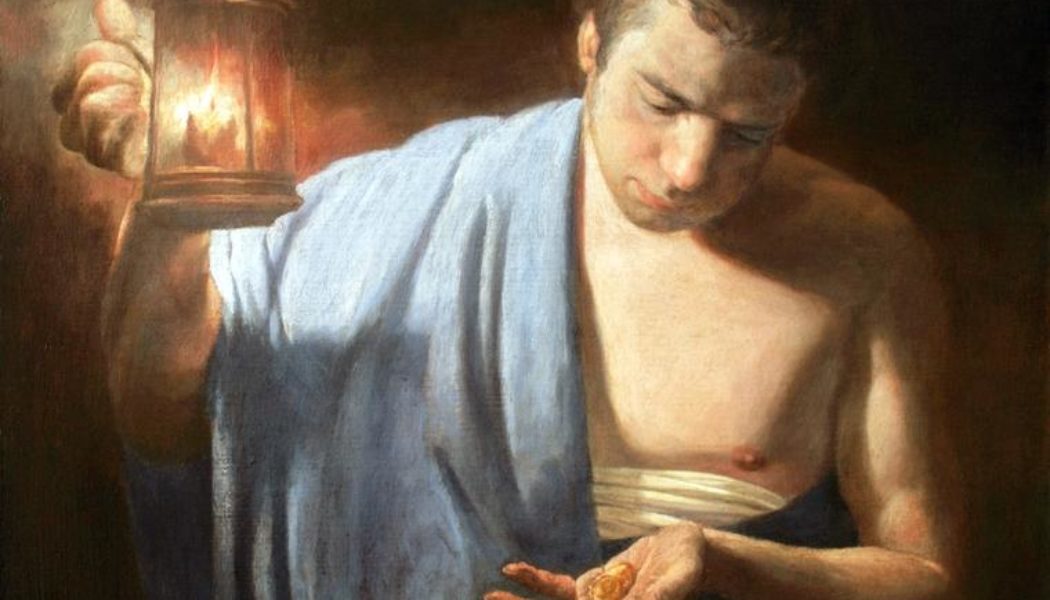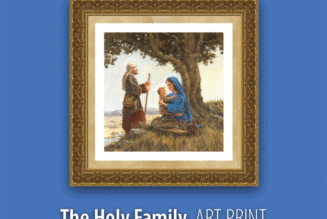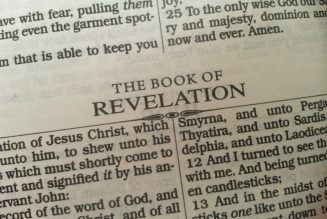
Counting today, two Sundays are left in Ordinary Time. Two weeks from now, Advent begins.
As is characteristic of the last weeks of Ordinary Time, the Church’s readings focus on eschatology: the Last Things (death, judgment or accounting for one’s life, heaven, hell). Matthew, the Gospel full of parables, teaches us about accounting for one’s life by means of today’s parable about talents.
“Talents” is a fortuitous wordplay in English, because it makes us think of the abilities God gives us and how we account for their stewardship. But “talents” in the Biblical world were not abilities but units of currency. It’s hard to say what their exact value was because talents were pegged to different precious metals, e.g., gold, silver or copper. A talent usually weighed about 75-80 pounds and was pegged to an equivalent weight of silver. One scholar said a talent was worth about 6,000 denarii. A denarius was the daily wage in Israel. One source suggests, therefore, that a talent was equivalent to the daily wage for 16 years of work. So even the third servant, who got “only” one talent, received a considerable asset.
But three servants receive talents: five, two and one, respectively. When the Master returns and settles accounts with those servants, the first two proudly report they have each doubled what their master entrusted them with. Each one is praised by their master and invited to “Come, share your master’s joy!”
The third, who fears both his master and risk, returns the talent, reporting he had buried it in the ground for safekeeping. He earns a rebuke, his single talent given to the servant who doubled five talents, while he is thrown penniless “into the darkness outside, where there will be wailing and grinding of teeth.”
After all, the Master did not need the servant to bury his talent. He could have done that himself. And even then, there was no guarantee the coin would be safe: as this year’s Gospel readings already noted, other people’s buried treasure in Israel did sometimes get dug up. So, far from just indicating a lack of initiative, the “wicked, lazy servant” actually put his Master’s money at risk. The Master reminds him that he could have “put my money in the bank” to earn at least some interest. Indeed, that would not just have accrued some earnings but, compared to money in the ground or under a mattress, might have had its principal protected by the Israel Deposit Insurance Corporation!
(I wrote on this parable once before, focusing on those talents. That essay is accompanied by Willem de Poorter’s painting, “The Parable of the Talents.” It captures the moment when the third servant plunks his Master’s talent back on the table, content he didn’t lose anything without considering that neither did he make anything. The look on the Master’s face, especially after his more pleasant conversations with other servants, suggests this servant is going to get reamed. That painting is in Prague).
Today’s Gospel is a profound meditation on the interplay of God’s grace and human action. Whatever good we do originates with, is supported by, and is brought to a conclusion by God’s grace. Our good starts with God. God inspires us, sustains us, and completes us. But God also expects us to do our part, offer our “widow’s mite,” use God’s dynamic grace and multiply it. Goodness is, after all, a building on God’s creation, appropriate to us who are his image and likeness and charged with dominion over that world.
The first two servants took what their Master entrusted them with and built on it, multiplied it. We, God’s servants, take what he entrusts us with and are called, by our free action, to build on it.
The “wicked, lazy servant” doesn’t even really know or appreciate what he’s been given. He’s too afraid to see the bigger picture, and so he squanders what he has, losing even that.
We must reckon with the fact that, in giving us freedom, God took a risk. He, in turn, expects us to take risks to multiply the good, to live life and to make that life better.
(That lazy servant is almost like classical Protestant theology which, by denying man’s ability — even under grace — to perform good works, throws the whole matter of “faith alone,” sola fides, on God. It doesn’t recognize that God’s faith in man, which entrusted the talent, should be paired with man’s good works under grace to multiply it.)
So, at the end of our lives, will we be able to acknowledge that the graces God gave us — every inspiration, every opportunity, every love — were put to good use, multiplied to increase good and love in their wake? That God’s faith in us was well-placed? I was always very impressed by a question St. Josemaría Escrivá posed in a meditation about how to think about standing before God’s Judgment seat. “Does your soul not burn with the desire to make your Father God happy when He has to judge you?” (The Way, no. 746). Think about it: do we ever think whether we are leading our lives in such a way that, when God has to judge us, he can proudly say, “That’s my boy! That’s my girl!”
Today’s Gospel is illustrated in art by the contemporary Russian painter, Andrey Nikolaevich Mironov. “Притча o талантах” (The Parable of the Talents) is a 2013 oil painting. I chose it because it focuses on the moment opposite from de Poorter’s painting. De Poorter examines the accounting of what the servant did with the talent. Mironov captures rather what I think is the critical moment. The servant has just been entrusted with that talent. It’s maybe something he’s never seen in his life. He looks at what is in his hands and now faces the moment of decision: “What do I do with it? I’ve never had anything like this, and yes, my Master is a hard man who reaps where he never sowed. This is a treasure, an opportunity like one I’ve never had before. But I’m afraid. Now what do I do?”
Isn’t that a question we all need to ask ourselves before we have to make an accounting, an accounting that hopefully makes God happy?








